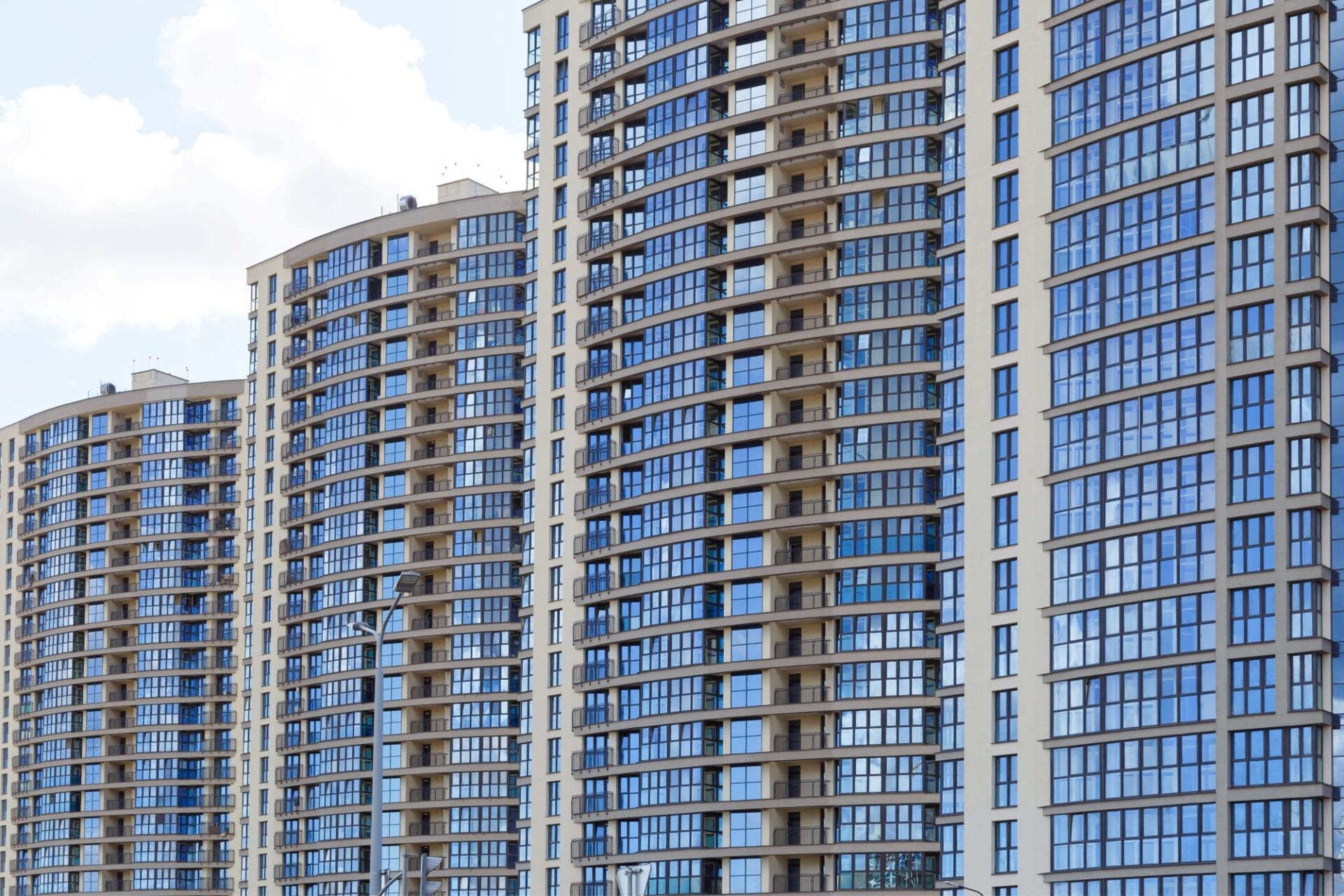Does your homeowners or condominium association have a website? If you live in Florida, and the answer is no, it’s time to get one.
As of 2019, condo associations with 150 or more units (excluding timeshare units) were legally required to have a website that complied with specific requirements. Additional changes were made in 2024, and now, condos with 25 or more units are expected to have a website.
Table of contents
- Who decided our condo needed a website?
- Do we really need a website right now?
- Requirements
- Privacy considerations
- What happens if we already have a website?
- What if my association has less than 25 units?
- Tips to get the most out of your website
Note that while HOAs are not specifically mentioned in the law, Senate Bill 398 does apply to HOAs and condos. It states that items that “each association shall designate on its website.” In short, Florida HOAs should have a website too.
Condominium associations with 25 to 149 units have until January 1, 2026 to comply with the amendments.
A lawyer who specialized in community associations is a good resource to start with if you’re uncertain about how to proceed.
Who decided our condo association needs a website?
In 2017, Florida Governor Rick Scott approved House Bill 1237, an amendment to Chapter 718, the chapter that regulates condominiums, of the Florida Statutes.
The bill’s objective is to address transparency and communication issues within condo associations. Residents and owners should be able to access financial documents, association records, and rules and regulations, but many people have experienced unnecessary difficulties when trying to locate or obtain those documents.
You can read a copy of the bill by visiting the Florida Senate website.
Does my association really need a website right now?
If your association has 25 or more units, yes. Associations with 150 or more units were originally expected to have their website up and running by July 1, 2018, but that deadline was extended to January 1, 2019. No additional extensions were given past the beginning of January 2019.
If your association is still without a website, you’re not alone, however, this issue should be addressed as quickly as possible. Non-compliant condo associations may be fined. Furthermore, board members could be removed by a quorum of unit owners as a result of noncompliance with the law.
Requirements
Associations with 25 or more units must have the following:
- A website or web portal that is owned and operated entirely by the association or a website or web portal that is operated by a third-party provider with whom the association owns, leases, rents, or obtains the right to operate a web page or portal;
- The website must also be accessible through the internet, and it is required to contain a subpage, web portal, or other secure electronic location that is password-protected. This is required so the general public cannot have access to the condo association’s documents;
- Relevant documents must be available to owners, employees, and managers of the association on the password-protected area of the website or portal. This includes:
- The recorded declaration of the condominium
- Bylaws
- Amendments to bylaws
- Articles of incorporation
- Rules and regulations
- The annual budget and any proposed budget to be considered at the annual meeting;
- The financial report and any monthly income or expense statement to be considered at the meeting;
- A list of all executory contracts or documents to which the association is a party After bidding for services or equipment, a list of bids received within the last year by the association must also be posted. Summaries of bids for materials, equipment, or services that are more than $500 must stay on the website for 1 year. In lieu of summaries, associations can upload complete copies of bids;
- The current certification of each director;
- All transactions and contracts between the association and director, firm, corporation or association that are not an affiliated condominium association, or any other entity in which an association director is also an officer or director, and holds a financial interest;
- Any contract or document regarding a conflict of interest or possible conflict of interest;
- The notice of any owner meeting and the agenda for the meeting, no later than 14 days before the meeting. The notice must be posted in plain view, and it must be on the front page of the website, or on a separate, visible subpage labeled “Notices”;
- Notice of any board meeting, the agenda, and any other documents required for the meeting must be posted no later than the association’s date required for notice;
- Any documents that owners will need for a membership meeting in order to make an informed vote, must be posted at least 7 days before the meeting.
The bill does note that if the association fails to post information on their website required by the bill, that is not a justified reason to invalidate any action or decision of the association’s board or committees.
Privacy considerations
It is very important that all associations keep privileged information and privileged records unavailable to anyone who does not have permission to access that information. If privileged information is included in documents that otherwise need to be shared on the association’s website, the association must redact the privileged content before posting the documents online.
My association already has a website in place. Is there anything more we should do?
If your condo/HOA already has its own website, check carefully to ensure it is meeting all of the law’s requirements. Make sure whoever is responsible for uploading content and documents are aware of the legal deadlines.
If a third party, such as your management company, is providing your website, take the time to review the agreement regarding the website to confirm who owns it. If the relationship between both parties suddenly ends, you need to know if you will still have the website, or if you will need to find a new provider. It is recommended that condo associations have an attorney review any agreement concerning their website to avoid potential misunderstandings.
What if my association has less than 25 units?
If your association has fewer than 25 units, there is no legal requirement for it to have an independent website. However, the rules could change again. For that reason, small associations may want to at least consider the costs and benefits associated with developing and maintaining a website and have a contingency plan ready to go in case the law is amended.
Make your website work for you and your condo community
Building or changing your association’s website can be a lot of work, but once you’ve met all the important requirements, it can actually help you maintain a more engaged community.
Improve communication. Consider adding additional communication features beyond what is required. For example, open forums allow members to talk freely with each other. This can create a stronger sense of community and keep everyone in the loop. Residents probably don’t want to read through dozens of pages of condo documents, nor do they all have the time. But if they can access everything online, they can take their time looking through documents, and access them any time, day or night.
Community calendars are another great tool to help members keep track of upcoming events. When residents are given notice about fun activities or community meetings, they’re much more likely to participate.
Something as simple as sending weekly reminders about upcoming events through online announcements can also improve turnout and minimize the amount of money the community spends on print costs. That’s something all association members can be happy about.
Showcase your association. Design a website that showcases the very best of your condo association. Make it attractive and user-friendly so that residents want to use it.
If you have a page that is publicly available, it can be used as a way to market your community to potential owners. Quality content and photos can tell people a lot about your community and entice them to make an inquiry about a unit within your association.
Your website truly reflects your community. If it looks modern, clean and attractive, then people will get the impression that your community is like that as well.
Increase efficiencies. Some associations have websites that allow for online payments to be made. This creates an additional level of convenience to community living. Residents can pay their dues at any time using electronic money transfers, credit, or debit.
If residents have the option to make payments through the condominium’s website, do make sure that your website hosting provider offers excellent encryption technology to ensure payments are secure and information is safe from cyber-threats.
Share community news and information. Your website may also be used to share important information such as links to local government websites, shopping centers, local attractions, etc. You can take steps to create beneficial liaisons between the community and local services simply by sharing information on your website.
Conclusion
All Florida condo associations with 25 or more units must have a website that complies with the amended state law. This new law may pose some initial challenges for condo associations, but there is a multitude of benefits to having a community website. The change will provide communities with the opportunity to stay informed and connected while increasing efficiencies and decreasing paper use.
Learn More
Get your condo website and resident portal























